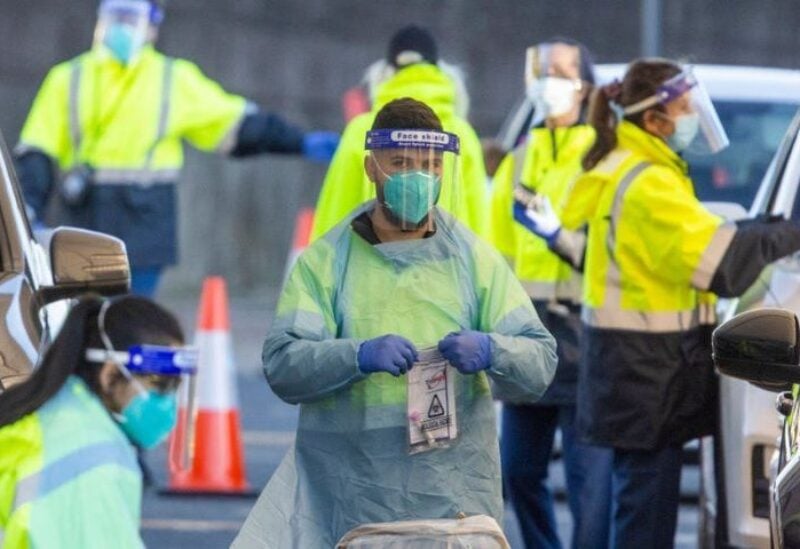
Outbreaks emerge across Australia
Australia’s daily coronavirus infections reached a new high on Thursday, fueled by the highly transmissible omicron variety, overloading hospitals, while isolation laws produced labor shortages, placing a pressure on companies and supply chains.
With Thursday’s count still completed, Australia has reported 72,392 new illnesses, considerably topping the previous day’s high of 64,774. Western Australia is expected to submit fresh instances later.
Prime Minister Scott Morrison, who faces a federal election in May, is under fire for his handling of the omicron epidemic, which has resulted in antigen test supply shortages and hours-long wait times at testing sites.
Having successfully put a lid on its COVID-19 caseload early in the pandemic through vigorous lockdowns, Australia is now experiencing infection rates significantly higher than elsewhere in the Asia-Pacific region, with some epidemiologists predicting that the worst is yet to come.
The government canceled Novak Djokovic’s visa on Thursday to appease public outrage over the decision to grant the world tennis number one a medical exemption from vaccination in order for him to compete in the Australian Open.
Authorities have reduced testing procedures and extended the quarantine time for asymptomatic close contacts in response to worries that key services would be overburdened.
To relieve strain on companies, the New South Wales (NSW) government recommended them to avoid requiring employees who may have been exposed to the virus to be tested if they do not display any symptoms.
“They should not be obliged to take a test,” NSW Premier Dominic Perrottet said on Thursday, according to radio station 2GB. “Behavior change will take time since… for the previous two years we’ve been telling (everyone) to go get tested.”
The transport workers union stated on Wednesday that COVID-19 regulations had isolated almost 50% of truck drivers, placing Australia’s supply chain under “severe strain.”
In response to concerns of bare shelves in some supermarkets, Coles Group reinstated temporary purchase limitations on some meat products “to assist control demand for important grocery goods.” Woolworths said there had been delays with goods deliveries but that any limitations were no longer in place.